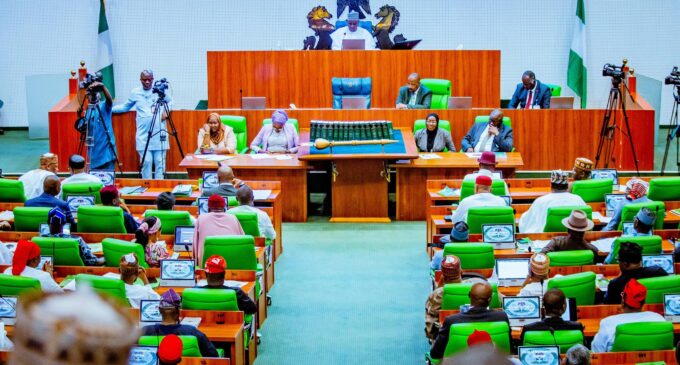A House of Representatives ad hoc committee has revealed significant lapses in the 2024 Hajj operations, citing financial mismanagement and logistical failures by the National Hajj Commission of Nigeria (NAHCON).
Led by Sada Soli of the Jibia/Kaita Federal Constituency in Katsina State, the committee presented its report to the House, proposing reforms to address inefficiencies in future Hajj arrangements.
The probe stemmed from a plenary session on July 14, 2024, under Speaker Tajudeen Abbas, following a motion by Omar Bio of Buruten/Kaima Federal Constituency in Kwara State.
[penci_related_posts title=”You Might Be Interested In” number=”4″ style=”list” align=”none” displayby=”cat” orderby=”random”]
The review examined NAHCON’s management, as well as the Federal Capital Territory Administration Muslim Pilgrims Board’s role in organizing the pilgrimage.
The federal government had approved a N90 billion subsidy for the Hajj exercise in May 2024, a decision that sparked public criticism due to prevailing economic difficulties.
Many Nigerians argued that the funds could have been better spent on addressing pressing social and economic issues rather than subsidizing religious travel.
Despite the financial intervention, governors expressed dissatisfaction with NAHCON’s handling of key logistics, particularly accommodation in Muna and inadequate Basic Travel Allowance for pilgrims.
This dissatisfaction led to President Tinubu’s decision to remove NAHCON Chairman Jalal Arabi in August 2024, appointing Abdullahi Usman as his successor.
Prior to this, the Economic and Financial Crimes Commission (EFCC) had indicted Arabi and Secretary Abdullahi Kontagora in connection with an alleged multimillion-dollar fraud scheme.
The House committee’s report, obtained by The PUNCH, uncovered various irregularities, including lack of transparency in fund allocation.
Pilgrims were charged up to N9 million each, but there was no clear explanation for the exorbitant costs.
The N90 billion federal subsidy was also poorly managed, with some beneficiaries receiving preferential treatment without clear criteria.
NAHCON had reportedly transferred the entire subsidy to its offshore accounts in Saudi Arabia, but there was no system in place to track its usage.
Accommodation issues were rampant, with Nigerian pilgrims subjected to overcrowding in Mina and Arafat despite high payments.
The situation was worsened by a Saudi policy change preventing tent upgrades on the e-track platform, which left high-profile pilgrims, including governors and traditional rulers, in distress.
Tensions between NAHCON and private tour operators were also evident, as the latter raised concerns over discrepancies in fees imposed on private versus state-sponsored pilgrims.
The lack of cooperation between both parties resulted in poor service delivery, with some pilgrims left stranded due to logistical failures.
The committee further scrutinized Nigeria’s Bilateral Air Agreement with Saudi Arabia, which requires Saudi airlines to handle 50% of Nigerian pilgrim transportation.
Lawmakers questioned whether this arrangement disadvantaged Nigerian carriers and recommended a review by aviation regulators.
Transportation within Saudi Arabia also proved problematic, with inadequate bus coordination causing delays between Makkah, Mina, and Jeddah.
Elderly pilgrims were forced to endure long walks due to poor planning, while others were stranded at various checkpoints.
The investigation also exposed financial mismanagement within the FCT Muslim Pilgrims Welfare Board, where an excessive number of officials attended the Hajj, leading to unpaid allowances and budget overruns.
The Central Bank of Nigeria (CBN) also came under scrutiny for its handling of the Personal Travel Allowance for pilgrims.
Due to fluctuations in exchange rates between May 15 and May 30, 2024, and widespread resistance to electronic transactions, the CBN approved full cash disbursements, placing additional pressure on commercial banks to facilitate payments.
The committee has recommended improved oversight, better financial transparency, and closer coordination between NAHCON, state pilgrims’ welfare boards, and private operators to ensure a more seamless and accountable Hajj process moving forward

